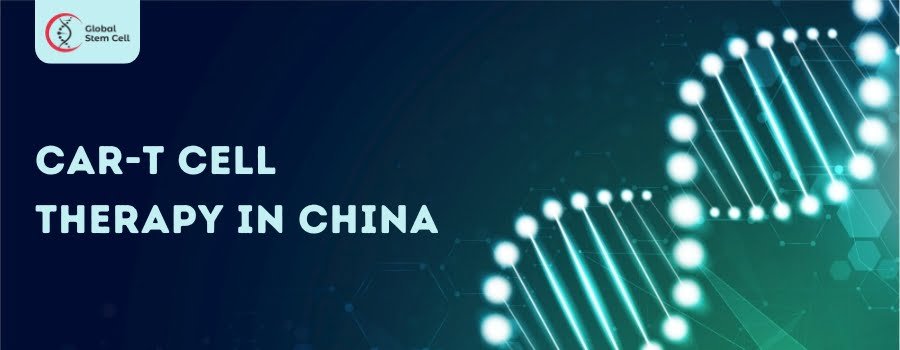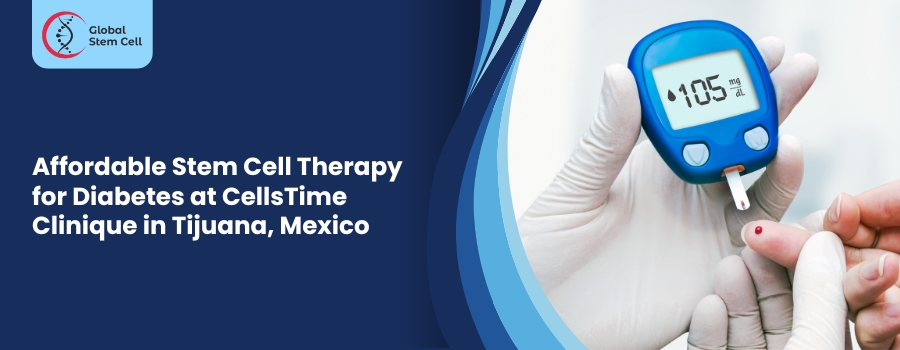
In this article, we’ll explore an exciting new treatment called CAR-T cell therapy and how it’s making waves in China. CAR-T cell therapy is a special kind of treatment that helps the body fight cancer in a unique way. It’s becoming very important in the world of medicine because of its potential to treat different types of cancer effectively.
In China, this treatment has been growing rapidly, and it’s essential to understand its development and impact. So, let’s dive in and learn more about CAR-T cell therapy and its journey in China.
What is CAR-T Cell Therapy?
CAR-T cell therapy (Chimeric Antigen Receptor T-cell therapy) is a groundbreaking form of immunotherapy used to treat certain types of cancer. It involves modifying a patient’s own immune cells, specifically T cells, to better recognize and attack cancer cells.
Here’s how the process generally works:
- Collection of T cells: T cells are a type of white blood cell involved in the immune response. In CAR-T therapy, they are extracted from the patient’s blood through a process called leukapheresis.
- Genetic modification: The extracted T cells are then modified in a laboratory. This modification involves introducing a gene that encodes a chimeric antigen receptor (CAR) into the T cells. This CAR is designed to recognize a specific protein (antigen) on the surface of cancer cells.
- Cell multiplication: The modified T cells are grown in large numbers in the laboratory, creating a population of CAR-T cells.
- Infusion: Once a sufficient number of CAR-T cells have been produced, they are infused back into the patient’s bloodstream. This infusion typically takes place after the patient undergoes a preparatory chemotherapy regimen that helps to clear out some of the existing immune cells and make space for the infused CAR-T cells to multiply.
- Attack on cancer cells: The infused CAR-T cells circulate in the patient’s body and locate cancer cells that express the targeted antigen. Upon recognizing these cancer cells, the CAR-T cells become activated and initiate a targeted attack against them, leading to their destruction.
The Rise of CAR-T Cell Therapy in China
The rise of CAR-T cell therapy in China has been marked by significant advancements and growing prominence within the global medical community. Over the past decade, China has emerged as a key player in the development and adoption of this groundbreaking immunotherapy approach for cancer treatment.
- Research and Development: Chinese researchers and biopharmaceutical companies have been actively engaged in CAR-T cell therapy research and development. They have contributed to the refinement of CAR-T cell technologies, including the design of novel chimeric antigen receptors and optimization of manufacturing processes.
- Clinical Trials: China has become a hub for CAR-T cell therapy clinical trials, offering patients access to innovative treatments and allowing researchers to gather valuable data on safety, efficacy, and long-term outcomes. Clinical trials conducted in China have explored CAR-T therapies for various types of cancer, including leukemia, lymphoma, and solid tumors.
- Regulatory Framework: The Chinese government has implemented policies to support the development and commercialization of advanced therapies, including CAR-T cell therapy. Regulatory agencies have worked to streamline approval processes for CAR-T products, enabling faster access to these treatments for patients in need.
- Investment and Infrastructure: China has invested significantly in biotechnology infrastructure and manufacturing capabilities to support the production and delivery of CAR-T cell therapies. This investment has facilitated collaborations between academic institutions, hospitals, and biotech companies, driving further innovation and growth in the field.
- International Collaboration: Chinese researchers and healthcare professionals have actively collaborated with their counterparts from around the world to exchange knowledge and expertise in CAR-T cell therapy. International partnerships have fostered scientific collaboration, technology transfer, and global harmonization of treatment standards.
- Clinical Practice and Patient Care: CAR-T cell therapy is increasingly becoming integrated into clinical practice in China, with specialized centers and hospitals offering these treatments to patients. Healthcare providers have gained experience in administering CAR-T therapies and managing associated side effects, contributing to improved patient care and outcomes.
CAR-T Cell Therapy Cost in China
The cost of CAR-T cell therapy in China can indeed vary, but it typically falls within the range of $100,000 to $150,000 USD. This cost includes various components such as the genetic modification of the patient’s T cells, laboratory processing, medical consultations, hospitalization, monitoring, and supportive care.
Several factors can influence the exact cost of CAR-T cell therapy, including the specific type of cancer being treated, the stage of the disease, the particular CAR-T product used, the hospital or medical center where the treatment is administered, and any additional medical services or procedures required during the treatment process.
Best Hospitals for CAR-T Cell Therapy in China
China’s healthcare landscape is experiencing a surge in advanced cancer treatments, with CAR T cell therapy at the forefront. Several hospitals and medical centers have established themselves as powerhouses in this field, offering patients hope and innovative treatment options. Here’s a closer look at two of the leading CAR T Cell Therapy Clinics in China:
Beijing Biococus Biotech Limited
- Focus: Biococus is a pioneering biotechnology Hospital specializing in the research, development, and commercialization of next-generation CAR-T cell therapies for various cancers.
- Strengths:
- Cutting-edge Technology: Biococus utilizes advanced platforms and technologies for CAR T cell engineering, ensuring precise targeting and potentially higher efficacy.
- Personalized Approach: Biococus emphasizes the development of individualized CAR T cell therapies tailored to each patient’s specific cancer profile.
- Experienced Team: Biococus houses a team of highly skilled scientists, researchers, and medical professionals with extensive knowledge in CAR T cell therapy development and clinical application.
Beijing Puhua International Hospital
- Background: JCI-accredited, Beijing Puhua International Hospital is a renowned medical institution known for its comprehensive healthcare services, including advanced oncology treatments.
- CAR T Cell Therapy Center: The hospital boasts a dedicated CAR T cell therapy center specifically designed to deliver this complex treatment.
- Advanced Facilities: The center is equipped with state-of-the-art laboratories, clean rooms, and equipment necessary for safe and effective CAR T cell production and manipulation.
- Expert Medical Team: Puhua International Hospital has assembled a team of highly qualified oncologists, hematologists, and researchers specializing in CAR T cell therapy. These specialists provide patients with personalized treatment plans, meticulous care throughout the process, and ongoing follow-up.
Disease Treated with CAR-T Cell Therapy
CAR-T cell therapy has shown promising results in the treatment of various types of cancers, particularly hematologic malignancies. Some of the diseases treated with CAR-T cell therapy include:
- Acute Lymphoblastic Leukemia (ALL): CAR-T cell therapy has demonstrated significant success in treating certain subtypes of ALL, particularly in children and young adults who have relapsed or refractory disease despite standard treatments.
- Diffuse Large B-cell Lymphoma (DLBCL): DLBCL is the most common type of non-Hodgkin lymphoma. CAR-T cell therapy has been approved for treating adults with relapsed or refractory DLBCL after two or more lines of systemic therapy.
- Follicular Lymphoma: CAR-T cell therapy is being investigated as a potential treatment option for patients with relapsed or refractory follicular lymphoma, a type of slow-growing non-Hodgkin lymphoma.
- Chronic Lymphocytic Leukemia (CLL): CAR-T cell therapy is being studied in clinical trials as a potential treatment for CLL, particularly in patients with relapsed or refractory disease who have exhausted standard treatment options.
- Multiple Myeloma: Although CAR-T cell therapy for multiple myeloma is still in the early stages of development, it shows promise as a potential treatment option for patients with relapsed or refractory disease.
- Hodgkin Lymphoma: CAR-T cell therapy is being explored as a treatment option for patients with relapsed or refractory Hodgkin lymphoma, a cancer of the lymphatic system.
- Solid Tumors: While most CAR-T cell therapies have been developed for hematologic malignancies, research is ongoing to extend this treatment approach to solid tumors, such as glioblastoma, pancreatic cancer, and sarcomas.
CAR-T Cell Therapy in China – Patient Success Story
Why Choose CAR-T Cell Therapy in China?
Choosing CAR-T cell therapy in China may be advantageous for several reasons:
- Access to innovative treatments: China has been rapidly advancing in the field of biotechnology and medical research. Chinese hospitals and research institutions are actively involved in developing and offering cutting-edge therapies, including CAR-T cell therapy. Patients may have access to innovative treatments and clinical trials that are not yet available in other countries.
- Experienced healthcare professionals: Chinese hospitals and medical centers often have experienced healthcare professionals who are skilled in administering CAR-T cell therapy and managing its associated side effects. Many physicians and researchers in China have received training and collaborated with experts from around the world in the development and implementation of CAR-T therapy.
- Availability of manufacturing facilities: China has a growing biopharmaceutical industry with the infrastructure and manufacturing capabilities to produce CAR-T cell therapies locally. This can potentially reduce waiting times for treatment and logistical challenges associated with importing cell-based therapies from other countries.
- Regulatory environment: China has made significant strides in streamlining its regulatory processes to facilitate the development and approval of innovative therapies. This includes efforts to accelerate the approval of CAR-T cell therapies and other advanced treatments, making them available to patients more quickly.
- Language and cultural considerations: For patients who are more comfortable with Chinese language and culture, receiving CAR-T cell therapy in China may offer a more seamless experience in terms of communication with healthcare providers and navigating the healthcare system.
FAQs about CAR-T Cell Therapy in China
How does CAR-T Cell Therapy work?
CAR-T Cell Therapy involves collecting a patient’s T-cells, genetically modifying them to express a receptor specific to cancer cells, and infusing these modified cells back into the patient’s body to target and kill cancer cells.
What types of cancer can be treated with CAR-T Cell Therapy in China?
CAR-T Cell Therapy is primarily used to treat certain types of blood cancers, such as B-cell acute lymphoblastic leukemia (ALL) and diffuse large B-cell lymphoma (DLBCL). Research and trials are ongoing for other types of cancer.
Are there any CAR-T Cell Therapy clinical trials available in China?
Yes, China is actively conducting clinical trials for CAR-T Cell Therapy. These trials are aimed at expanding the use of CAR-T therapy for various cancers and improving treatment protocols.
What are the eligibility criteria for CAR-T Cell Therapy in China?
Eligibility criteria may vary by specific clinical trials and hospitals, but generally, patients with relapsed or refractory blood cancers who have not responded to conventional treatments are considered.
What is the cost of CAR-T Cell Therapy in China?
The cost of CAR-T Cell Therapy in China can vary widely depending on the hospital and specific treatment protocol, but it generally ranges from $100,000 to $150,000 USD.
How long does the treatment process take?
The entire process, including T-cell collection, genetic modification, and infusion, typically takes several weeks. The patient may also need to stay in the hospital for monitoring and management of side effects.
What are the success rates of CAR-T Cell Therapy in China?
Success rates can vary based on the type of cancer and the specific case, but clinical trials have shown promising results with significant remission rates in patients with certain blood cancers.
How do I prepare for CAR-T Cell Therapy?
Preparation involves thorough medical evaluations, including blood tests, imaging studies, and consultations with oncology and hematology specialists. Patients should discuss their medical history and any current medications with their healthcare team.
Learn more about the groundbreaking CAR-T cell therapy and its impact in China. Stay informed to be part of the future of cancer treatment!




